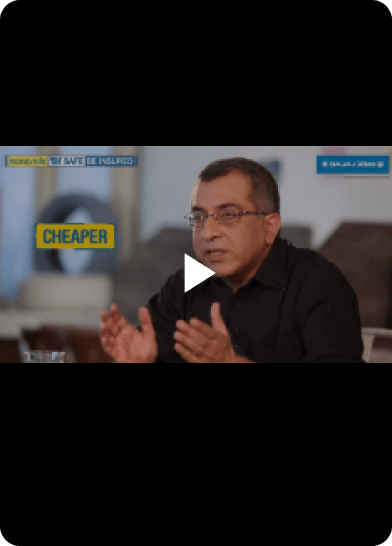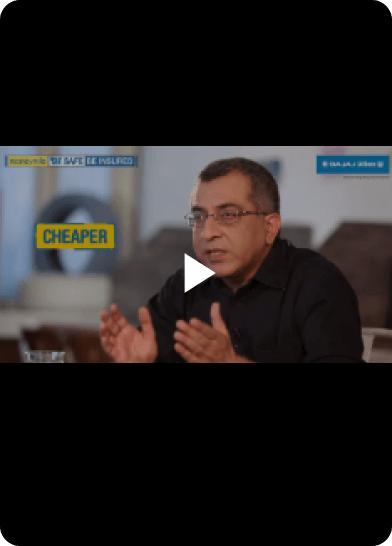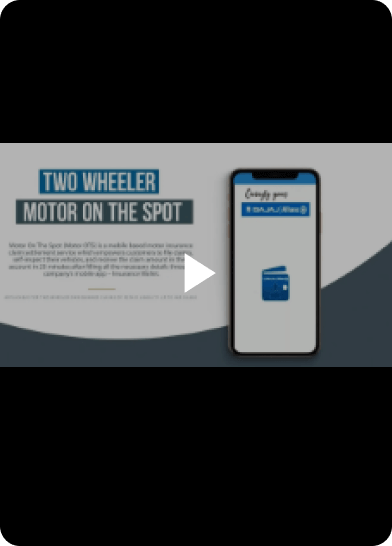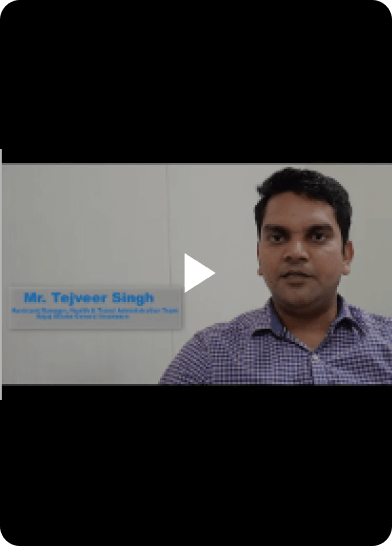

Suggested
-
health insurance
-
group personal accident
-
bike insurance
-
car insurance
-
cat insurance
-
check car details
-
health insurance plans
-
health cover plans
-
two wheeler insurance
-
2 wheeler insurance
-
renewal of car insurance
-
renew car insurance
-
car insurance renewal
-
car insurance renew
-
car insurance online
-
maruti suzuki car insurance
-
maruti suzuki insurance
-
maruti insurance
-
travel insurance
-
car no details
-
car number details
-
health insurance plans for family
-
medical insurance plans for family
-
best health insurance in india
-
good health insurance in india
Investment Insurance
Investment Insurance


Investment Plans
Investment plans are those which help you grow your savings with returns. You can invest your savings in different types of investment plans and earn returns on the invested amount. This return, over time, can grow your savings and build them into a corpus that can help fulfil your financial goals.
Investment plans also act as tax-planning tools, as many avenues help reduce tax liability. There are different types of investment plans, and by choosing the right one, you can invest according to your needs and grow your savings
Comprehensive Health

What is an Investment Plan?
An investment plan helps you grow your savings in a disciplined and systematic manner, in line with your financial goals, according to your risk profile, and according to your asset allocation requirements. The financial goals could be either long, mid, or short-term, and an investment plan can be aligned to achieve each specific goal. An investment plan¹⁹ could be in a single asset class or a mixture of multiple asset classes, i.e. equity, debt, gold, money market instruments, fixed income, real estate, etc., which needs to be picked based on your financial situation, risk appetite and investment goals. However, each type of investment plan has its underlying risks, which need to be understood carefully before investing and then monitored from time to time to track the progress and assess its effectiveness towards fulfilling your financial goals!
| Type of plan | Brief description | Tax implications |
|---|---|---|
| Equity shares | These are stocks issued by companies listed on the stock exchange. Giving a share means getting part ownership in the company. |
Selling within 12 months – 15% short-term capital gain tax Selling after 12 months – Returns up to ₹1 lakh are tax free. Excess returns are taxed at 10%. |
| Equity mutual funds | Mutual funds that allocate at least 65% of their capital to equity are called equity mutual funds. These funds have a high-risk, high-return profile. |
Selling within 12 months – 15% short-term capital gain tax Selling after 12 months – Returns up to ₹1 lakh are tax free. Excess returns are taxed at 10%. |
| ULIP equity funds | These funds are available under ULIPs, which invest in equity funds. These funds have a high-risk, high-return profile. |
Premiums paid qualify for tax deduction under Section 80C up to ₹1.5 lakhs, subject to specific terms and conditions. The death benefit is tax free. On maturity, the benefit received is tax free if the premium paid is up to 10% of the capital sum assured for policies bought on or after 1st April 2012. For policies bought before 1st April 2012, the premium should be up to 20% of the capital sum assured. For policies bought on or after 1st April 2013 by individuals suffering from a disability or disease specified under Section 80U or 80DDB, the premium should be up to 15% of the capital sum assured. For policies issued on or after 1st February 2021, the annual aggregate premium should be up to ₹2.5 lakh. If the annual aggregate premium exceeds ₹2.5 lakh, ULIP/ULIP funds would attract long-term capital gain taxation. |
| Equity funds in the National Pension System (NPS) | This is a market-linked retirement-oriented scheme which helps to build a retirement fund. |
Investment in the NPS scheme qualifies for income tax deduction under Section 80CCD (1). Additional deduction on investments is also allowed under Section 80CCD (1B). On maturity, 40% of the accumulated corpus is tax free. From remaining 60%, the amount used to buy annuity and annuity received is taxed at your applicable slab rate. |
| Type of plan | Brief description | Tax implications |
|---|---|---|
| Fixed deposits (FDs) | Fixed deposits offer guaranteed returns over a fixed term. You can save a lump sum amount for a fixed term and earn assured interest. |
Investment in 5-year FDs qualifies for income tax deduction under Section 80C up to ₹1.5 lakh. Interest earned is taxable. Senior citizens can enjoy tax deduction on interest income under Section 80TTB up to ₹50,000. |
| Public Provident Fund (PPF) | It is a government-backed investment that offers secure returns with tax benefits. |
The investment made is tax deductible under Section 80C up to ₹1.5 lakh. Interest and maturity proceeds are also tax-free. |
| National Savings Certificate (NSC) | NSC is also a government-backed fixed income scheme offered by the post office. |
The investment made and interest earned in the first four years are allowed as a deduction under Section 80C. The interest earned in the fifth year are taxed at your income tax slab rates. |
| Kisan Vikas Patra | This is a small saving scheme with a government guarantee that doubles your investment in a fixed number of years. | Investments made are eligible for deduction under Section 80C. However, the interest is taxable when you lay your hands at maturity. |
| Sukanya Samriddhi Yojana (SSY) | This scheme is a fixed-income scheme for the financial security of a girl child. | The investment is eligible for deduction under Section 80C. The interest earned and the maturity benefit paid are also tax-free. |
| Employees' Provident Fund (EPF) | A retirement-oriented, fixed income scheme for salaried employees. EPF creates a corpus over the working life of the employee. | Investments made are allowed as a deduction under Section 80C up to ₹1.5 lakhs subject to specific limits. The interest earned is also tax-free, subject to specific conditions. |
| Debt funds and ULIPs (for ULIPs) | Debt mutual funds invest primarily in debt instruments and help you build a corpus. They have a lower risk, lower return profile compared to equity funds. In ULIPs, the policyholder can choose the type of fund based on his risk appetite and investment goals. |
For ULIPs: Premiums paid qualify for tax deduction under Section 80C up to ₹1.5 lakhs, subject to specific terms and conditions. The death benefit is tax-free. On maturity, the benefit received is tax-free if the premium paid is up to 10% of the capital sum assured for policies bought on or after 1st April 2012. For policies bought before 1st April 2012, the premium should be up to 20% of the capital sum assured. For policies bought on or after 1st April 2013 by individuals suffering from a disability or a disease specified under Section 80U or 80DDB, the premium should be up to 15% of the capital sum assured. For policies issued on or after 1st February 2021, the annual aggregate premium should be up to ₹2.5 lakh. If the annual aggregate premium exceeds ₹2.5 lakh, the returns earned would be taxed as long-term capital gain @20% on gain amount. For debt mutual funds: No tax benefit on investment, and returns earned would be taxed at your income tax slab rates. |
Risks & returns in investment
Benefits of investment plan

Inculcates saving habit
When you start investing in different types of investment plans, you might try to save a part of your income for your investment. For instance, if you choose a unit-linked...

Helps in financial planning
Saving and investing are essential to creating a corpus for your financial goals. As such, investment plans give you an avenue to save, with the possibility of returns that can...

Helps saving tax
As mentioned earlier, some investment plans help save taxes. For instance, section 80C of the Income Tax Act of 1961 lists...

Helps in emergency planning
You can set aside funds for unforeseen emergencies and build an emergency corpus. You can invest this corpus in liquid investment avenues, like a savings account, to get returns over...

Helps in estate planning
Investment plans also allow you to plan a legacy by leaving behind a corpus for your loved ones. You can nominate your loved ones to receive the benefits after your...
How To Choose The Best Investment Plan?
As mentioned earlier, there are various investment plans available in the market. To choose the right plan, here are some factors that can be considered –
Check the risk involved in the investment plan and assess whether you have the appetite to tolerate the involved risk.
For instance, equity-oriented investment plans, like equity shares, mutual funds and equity funds in ULIPs, have a high-risk profile. Choose these investment avenues only if you have a healthy risk appetite. Otherwise, you can consider less risky avenues like a fixed deposit or endowment insurance plans.
Understand the return potential of the investment avenue that you are considering. An avenue that offers good returns is a good choice since it allows you to grow your savings effectively.
However, the return potential vis-à-vis the risks involved must be assessed. High-risk investments can give higher returns but might not suit your risk appetite. So, choose investments based on their risks and returns.
Check the investment horizon of the investment avenue. Ensure that it aligns with your investment horizon. For instance, if you want to save for the short term, choose liquid avenues, like savings accounts, liquid mutual funds, etc. On the other hand, if you have a long-term investment outlook, you can choose avenues with a long-term horizon.
Choose investments that are suitable for fulfilling your financial goals. Try to earmark investment avenues for particular goals so that you can easily create a corpus for them.
There might be a minimum investment amount in some avenues. Check the amount and ensure that it aligns with your savings.
Lastly, assess the tax benefits of investment avenues. Choose avenues that can help you save the maximum amount of tax so that you can invest and reduce your taxes, too.
Health Companion

Track, Manage & Thrive with Your All-In-One Health Companion
From fitness goals to medical records, manage your entire health journey in one place–track vitals, schedule appointments, and get personalised insights

Take Charge of Your Health & Earn Rewards–Start Today!
Be proactive about your health–set goals, track progress, and get discounts!

Your Personalised Health Journey Starts Here
Discover a health plan tailored just for you–get insights and achieve your wellness goals

Your Endurance, Seamlessly Connected
Experience integrated health management with us by connecting all aspects of your health in one place
Insurance Samjho

Critical Illness Insurance

Health Claim by Direct Click

Personal Accident policy

Global Personal Guard Policy

Claim Motor On The Spot

Two-Wheeler Long Term Policy

24x7 Roadside/Spot assistance

Caringly Yours (Motor Insurance)

Travel Insurance Claim

Cashless Claim

24x7 Missed Facility

Filing a Travel Insurance Claim

My Home–All Risk Policy

Home Insurance Claim process

Home Insurance Simplified

Home Insurance Cover
What Our Customers Say
Cashless Claims
Excellent service for your mediclaim cashless customers during COVID. You guys are true COVID warriors, helping patients by settling claims during these challenging times.

Arun Sekhsaria
Mumbai
29th May 2021
Instant Renewal
I am truly delighted by the cooperation you have extended in facilitating the renewal of my Health Care Supreme Policy. Thank you very much.

Vikram Anil Kumar
Mumbai
27th Jul 2020
Quick Claim Settlement
Good claim settlement service, even during the lockdown, has enabled me to sell the Insurya Consulting Health Policy to more customers.

Prithbi Singh Miyan
Pune
27th Jul 2020
Instant Policy Issuance
Very user-friendly. I got my policy in less than 10 minutes.

Jaykumar Rao
Bhopal
25th May 2020
Smooth Process
The online health insurance policy renewal on your website is excellent, user-friendly, and smooth.

Rama Anil Mate
Pune
25th May 2019
Customer Support
Insurya Consulting’s executive has provided extreme support and would like to appreciate the same. Kudos.

Suresh Kadu
Nagpur
25th May 2019
FAQs
Health insurance helps cover hospitalization costs, doctor consultations, medicines, and other healthcare expenses, reducing financial stress during medical emergencies.
Most policies cover hospitalization expenses, pre- and post-hospitalization costs, daycare procedures, ambulance charges, and sometimes maternity benefits and preventive health check-ups.
Yes, you can switch your policy to another insurer without losing benefits like waiting period credits and NCB.
Riders are optional add-ons that provide additional benefits beyond the base policy. Common riders include critical illness cover, personal accident cover, hospital cash benefit, maternity cover, and OPD cover, helping to customize and enhance your health insurance coverage.
Medical insurance provides financial protection against unexpected medical expenses, ensuring access to quality healthcare without depleting your savings.
You can add your spouse, children, parents, and other dependents as per the policy terms, ensuring comprehensive family coverage.
Online comparison helps you find the best plan that suits your needs and budget, offering a clear understanding of coverage and benefits.
Delaying premiums can result in policy lapse, losing coverage benefits and financial protection, and may lead to difficulties in renewing the policy.
Request a physical copy from the insurer or take a printout of the digital policy document received via email.
Claims should be made within the stipulated time as per the policy terms to avoid rejection and ensure timely processing.
Pre-existing conditions are medical conditions you had before buying your Individual Health Insurance plan. Coverage for these might require waiting periods or exclusions. Be transparent about your health history.
Insurers cover hospital bills through reimbursement (you pay upfront and get reimbursed later) or cashless hospitalisation (insurer settles bills directly with network hospitals).
Individual Health Insurance premiums often qualify for tax deductions under Section 80D of the Income Tax Act (India).
Personal medical insurance offers financial protection against unexpected medical expenses due to illness, accidents, or hospitalisation. It provides peace of mind and safeguards your savings.
Don’t stress the small things in life! The easiest and quickest way to renew your life insurance policy is by doing it online. Topping up your health cover gives you freedom from worrying about heavy medical expenses.
We know that reading through the ponderous terms and conditions section of a health insurance policy isn’t always easy. So, here is the quick answer. Your renewal premium is calculated based on your age and coverage. As always, you can put the power of compounding to good use by investing in health insurance as early as possible.
Yes, of course. Life can get really busy and even things as important as renewing your health insurance plan can get side-lined. With Insurya Consulting, we turn back the clock to give a grace period where you can renew your expired policy. For 30 days from the expiry date, you can still renew your health cover with ease. Now, you can run the race at yo
Absolutely! All you have to do to renew your health insurance is click or tap a few times! You can definitely renew health insurance policies online and also buy new policy for your family & friends click here to know more.
Yes, as per IRDAI regulations, insurance portability between providers is allowed. This also includes transfer of benefits like Cumulative Bonus and credits relating to waiting period for pre-existing diseases.


























